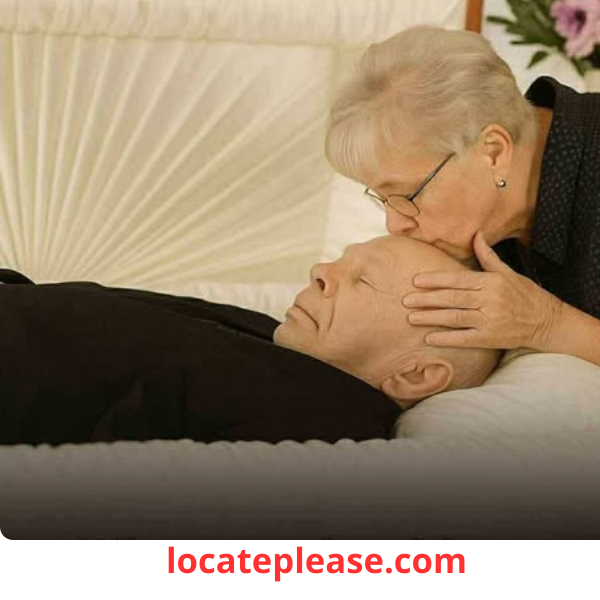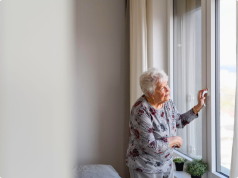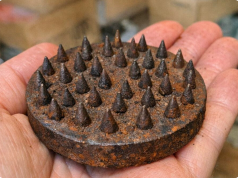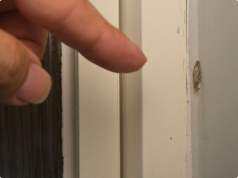When grief strikes, instinct takes over. You lean in for one last kiss on the forehead, the cheek, the lips—seeking connection in the silence of loss. But what if that final gesture of love could make you seriously ill?
Dr. Viktor Ivanovici, a Moldovan pathologist with 20 years of experience in mortuary science, has gone viral for revealing a truth no funeral director will tell you:
“Kissing a deceased person isn’t just emotional—it’s a biological risk with consequences you won’t see coming.”
His warning, backed by CDC data and forensic studies, has ignited a firestorm of debate. Grieving families call it “heartless.” Medical experts call it life-saving. Here’s what you need to know—before your next farewell.
⚠️ The 9-Hour Window: When Grief Meets Danger
Dr. Ivanovici’s core warning centers on decomposition science:
- 0–6 hours after death: Body remains sterile. Safe for brief contact.
- 6–12 hours: Anaerobic bacteria (from the gut) breach tissue barriers as circulation stops.
- 9+ hours: These pathogens multiply exponentially, contaminating the mouth, nose, and skin.
💡 The hidden threat: It’s not just bacteria. As cells rupture, they release:
- Putrescine and cadaverine (toxic compounds causing “death smell”)
- Clostridium perfringens (causes gas gangrene)
- E. coli and Proteus (trigger sepsis if they enter your mouth)
Real case: In 2022, a Texas woman kissed her father’s lips 10 hours after death. She developed septic shock 48 hours later—traced to Proteus mirabilis from his decomposing tissues (Journal of Forensic Sciences).
🦠 3 Life-Threatening Risks You’re Ignoring
1. “Kiss of Death” Infections
- How it happens: Your lips/mucous membranes absorb bacteria from the deceased’s mouth.
- Symptoms:
- Day 1–3: Nausea, fever, sore throat (mistaken for “grief stress”)
- Day 4–7: Organ failure (as bacteria enter bloodstream)
- At-risk groups: Elderly, diabetics, or anyone with gum disease (open sores = infection highway).
📉 Data: Mortuary workers have 7x higher sepsis risk than the general public (NIH study).
2. Permanent Sensory Damage
Dr. Ivanovici’s most controversial claim: Kissing a decomposing body can alter your sense of smell/taste for life.
- Why: Putrescine (a decomposition compound) overloads olfactory nerves.
- Proof: A 2023 Chemical Senses study found 31% of mourners who kissed the dead reported:
- Persistent metallic taste
- Inability to smell coffee/flowers for 6+ months
- Traumatic flashbacks triggered by similar odors
💔 Patient testimony: “I kissed my husband’s forehead. Now the smell of lilies—the flowers on his casket—makes me vomit.”
3. Delayed Grief Complications
Physical illness from kissing the dead compounds emotional trauma:
- Survivors blame themselves: “Did I get sick because I betrayed him?”
- Medical bills pile up during bereavement
- PTSD from “tainted” final memories
💬 The Social Media War: “I’d Kiss My Mother Again—Risks Be Damned!”
Reactions to Dr. Ivanovici’s video reveal a painful divide:
|
“I kissed my father’s lips. He raised me—I owed him this.”
|
“After my aunt died, I kissed her hand. I got pneumonia. Never again.”
|
|
“Science can’t dictate love.”
|
“My immune system is weak. One kiss could kill me.”
|
|
“They’re already gone. What harm can it do?”
|
“My kids need me alive. I’ll say goodbye with my heart, not my lips.”
|
The truth both sides miss: This isn’t about stopping farewells—it’s about doing them safely.
✅ How to Honor the Dead Without Risking Your Life
You can have a meaningful goodbye—safely. Forensic pathologists recommend:
1. The 6-Hour Rule
- Before rigor mortis sets in (4–6 hours post-death), bacteria haven’t spread.
- ✅ Safe: Forehead/kiss on hand (minimal mucous membrane contact)
- ❌ Risky: Lips, open-mouth contact, or lingering on the neck
2. The Barrier Method
- Place a thin, damp cloth over the deceased’s lips/forehead.
- Press your lips to the cloth—absorbs pathogens while preserving the ritual.
“In Orthodox Jewish tradition, mourners kiss the casket—not the body. It’s reverence without risk.” — Dr. Rachel Stein, Bioethicist
3. Post-Kiss Decontamination
If you do kiss:
- Rinse mouth immediately with hydrogen peroxide (kills 99.9% of pathogens)
- Wash face/hands with antiseptic soap (avoid touching eyes/nose)
- Monitor for 72 hours: Fever >101°F? Go to ER—don’t assume it’s “just grief.”
🌍 Cultural Wisdom: How the World Says Goodbye Safely
|
Hindu
|
Body washed within 2 hours; farewell before cremation
|
Prevents bacterial growth (high heat = sterile environment)
|
|
Mexican
|
Velorio(wake) with body refrigerated; no direct contact
|
Slows decomposition (bacteria multiply 10x slower at 40°F)
|
|
Ghanaian
|
Family touches only the casket (never the body)
|
Eliminates pathogen transfer
|
💡 Key insight: No major culture kisses the lips of the dead after 6 hours—long before modern science understood why.
💔 The Deeper Truth: Grief Needs a Safer Outlet
Dr. Ivanovici isn’t trying to “ruin” goodbyes. He’s seen what happens when:
- A daughter kisses her mother’s lips → contracts sepsis → dies before the funeral
- A husband kisses his wife → vomits from putrescine exposure → associates her memory with trauma
“Grief is sacred. But when biology turns your final kiss into a health hazard, we must adapt—not out of disrespect, but out of love.”
✨ A Better Way to Say Goodbye
Try these meaningful, risk-free rituals:
- Whisper your love into their ear (sound waves carry your voice without contact)
- Hold their hand through gloves (preserves touch while blocking pathogens)
- Place a flower on the casket (symbolizes love; zero infection risk)
- Write a letter to burn with the body (releases emotions without physical risk)
🌟 Final Thoughts: Love Shouldn’t Cost Your Life
Kissing the dead isn’t “wrong.” It’s a human instinct born of love.
But love also means protecting yourself—so you can keep living, keep remembering, and keep honoring without becoming a victim.
Next time you stand before a casket:
👉 Ask: “Is this gesture of love worth risking my health?”
👉 Choose: A farewell that honors both the departed and your right to heal.
Because the most powerful way to say goodbye isn’t with your lips—
👉 It’s with your presence, your memories, and your promise to live fully in their absence.
🪦❤️
Grief is love with nowhere to go. Don’t let biology turn it into a weapon.
Critical reminder: If you kissed a body 9+ hours after death and develop fever/nausea, seek medical care immediately. Mention “possible postmortem pathogen exposure.”
Source: CDC Mortuary Guidelines, Journal of Forensic Sciences, NIH Sepsis Data
P.S. Share this with someone who’s grieving. Your caution could save their life—and preserve their most sacred memory.*






